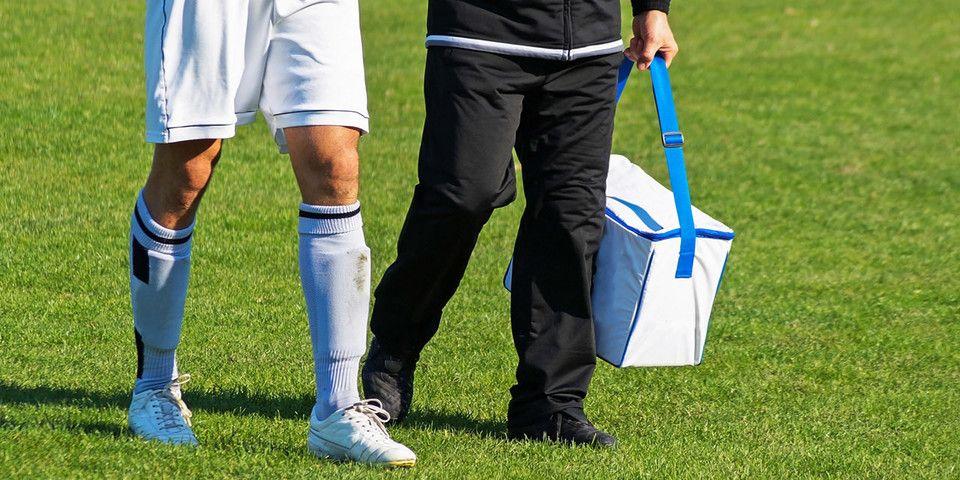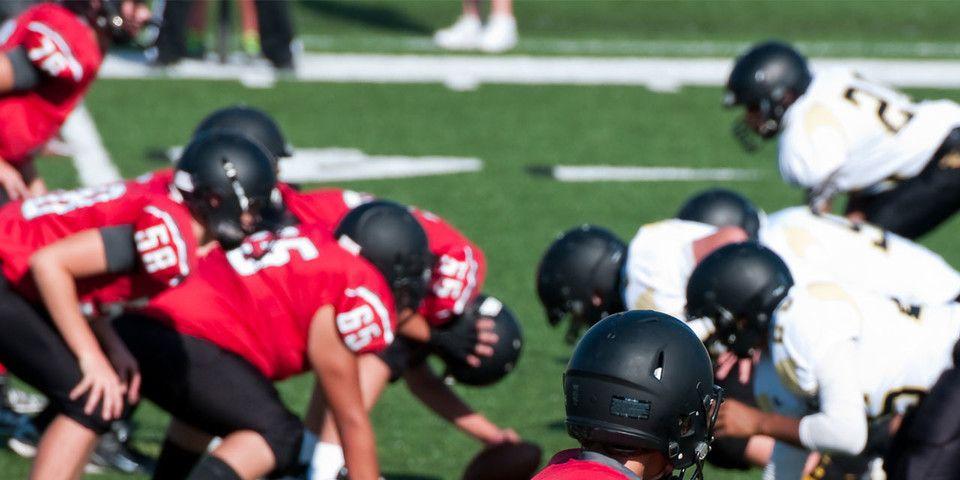What Treatment Options Exist for a PCL Injury Playing Football?
Rothman Institute can ensure that you receive the effective PCL treatment you need.
It’s the middle of an intense football game. After a dive, a fall, or a quick halt, you drop to the ground—and your bent knees make a hard impact with the ground surface. The direct blow injures your knee.
Soon after the injury occurs, you notice symptoms of pain and swelling, stiffness, and instability of the knee. You may have difficulty walking or walk with a limp. If you are experiencing symptoms of this sort following a blow to the knee, you likely have suffered a posterior cruciate ligament (PCL) injury playing football. And you are probably seeking answers to your questions regarding the options available to you for treatment.
Rothman Institute has extensive experience both in sports medicine and in treating knee injuries—including PCL injuries. As you consider the treatment process, recovery period ahead, and return to football in the future, this list of treatment options compiled by Rothman Institute can help you to better understand the choices available to you.
Three Grades and Four Treatment Options for PCL Injuries
There are three grades of PCL sprains; if your sprain is of grade one or two, non-surgical treatments may be sufficient. Grade three sprains will likely require surgery to be repaired.
The degree of physical damage suffered will determine the grade of your injury; which, in turn, will determine the course of treatment which is prescribed for you. Let’s take a closer look at the three grades of PCL injuries:
-
Grade One Injuries
A grade one sprain of the PCL means the ligament has suffered a minimal level of damage. Typically, a grade one injury will leave the PCL somewhat stretched but still functional. The knee joint remains stable. -
Grade Two Injuries
In the case of a grade two injury of the PCL, the ligament is sprained or partially torn and stretched to the point where function is inhibited and the ligament itself is loosened. -
Grade Three Injuries
Grade three injuries are complete tears. If a grade three injury has occurred, the ligament will be torn into two separate pieces; this leaves the knee joint loose and unstable.
The treatments recommended for PCL injury patients are dependent upon their grade of injury — as well as the specifics details of the injury and the overall health and medical history of the patient. Listed below are four treatment options that may be prescribed following a PCL injury playing football, depending upon the grade and severity of your injury.
-
Rest, Icing, Compression, and Elevation
In the case of grade one sprains with minimal damage to the affected ligament, applying a combination of rest, icing, compression, and elevation to your knee may allow your PCL to sufficiently heal. -
Braces and Assistive Devices
Immobilizing your knee can relieve stress and allow the PCL to heal. Your doctor may recommend the use of assistive devices to immobilize the affected knee, such as a knee brace and crutches. -
Physical Therapy
Exercises that build muscle and ligament strength can help your PCL to heal and prevent future injuries. -
Surgery
If non-operative treatment options prove to be insufficient or if your initial injury is of a severe degree (grade three), surgery to rebuild the PCL will usually be recommended.
We hope that this overview of treatment options following a PCL injury playing football is helpful in answering your questions as you prepare for treatment. However, you likely have questions remaining: Can you play football with a torn PCL? What is the PCL injury success rate or the PCL sprain recovery time? Rothman Institute’s Sports Medicine specialists will help to answer your questions and offer you the effective treatment you need. To learn more, visit us here or contact us at 1-800-321-9999.
Related Specialties
Related Physicians
- All Specialties
- Hip
- Knee
- Spine
- Sports Medicine
- Shoulder & Elbow
- Foot & Ankle
- Hand & Wrist
- Physical Medicine & Rehabilitation
- Orthopaedic Oncology
- Orthopaedic Trauma & Fracture Care
- General Orthopaedics
Physician Language
- All Languages
- English
- Persian
- Spanish
- Italian
- Chinese
- German
- Tamil
- Turkish
- Taiwanese
- Mandarin
- Hindi
- Punjabi
- Korean
- Gujarati
- Arabic
- Telugu
- Vietnamese
- Swedish
Filter Physicians
Search
Specialties
- All Specialties
- Hip
- Knee
- Spine
- Sports Medicine
- Shoulder & Elbow
- Foot & Ankle
- Hand & Wrist
- Physical Medicine & Rehabilitation
- Orthopaedic Oncology
- Orthopaedic Trauma & Fracture Care
- General Orthopaedics
Physician Language
- All Languages
- English
- Persian
- Spanish
- Italian
- Chinese
- German
- Tamil
- Turkish
- Taiwanese
- Mandarin
- Hindi
- Punjabi
- Korean
- Gujarati
- Arabic
- Telugu
- Vietnamese
- Swedish
Please select your region to view available physicians.
Select Your Region- All Locations
- {{item.title}} {{distanceText(item)}}
Sort
Related Conditions
Related Treatments
Related Services
Related Programs
-

Athletic Training- Sport Medicine Outreach
Our Field Athletic Trainers provide direct sports medicine care to youth, high school, college and professional athletes. Rothman AT’s provide athletic training services throughout Southeastern PA and NJ to interscholastic high schools, colleges, as well as tournaments and special events.Read More -

Injury Prevention Program
The Injury Prevention Program at the Rothman Orthopaedic Institute is dedicated to the prevention of injuries from athletic participation, particularly youth sports.Read More





